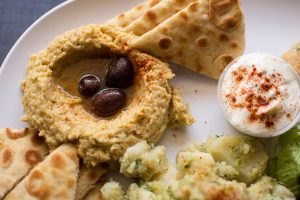
Photo credit: Pixabay
Prolon diet, or fasting mimicking diet, is essentially a meal plan developed by Italian biologist Dr. Valter Longo in which fasting is mimicked in such a way that your body isn’t starved of any crucial nutrients. In this article we’re going to review FMD and discuss its benefits and drawbacks, as well as the price.
So how does it work?
Prolon fasting-mimicking diet provides five days of meals with a specific meal schedule for each day. Example of Prolon meal for the first day looks like this:
- Kale crackers
- Two types of teas, peppermint, and lemon
- Nut-based bars
- Dark chocolate bar
- Plant-based supplements containing different vitamins and nutrients
- Olives
- Two different soups
While the meals for the first day don’t look abundant, this is a most caloric day, counting close to 1000 calories. The rest of the days amount to 750 calories each. This calorie restriction is actually where all the benefits from the Prolon diet come from. Each day is supposed to provide 30 to 50 percent of the usual calorie intake.
That is enough to push your body into a fasting state, and that’s where the biggest question comes in. Why pay someone $250 to help you through the same process of fasting, when you can do same on your own pretty much for free. However, we’ll get to that later, let’s now discuss the main benefits of this diet.
Benefits
Before we discuss any benefits, the main one is that this diet is backed up by actual research. When used as recommended, intermittently, it produces 47 percent more weight loss compared to continuous low-calorie diets. On the other hand, it is not compared scientifically in any way to conventional fasting which might offer you the same benefits without the need to spend a substantial amount of money.
Reduces cholesterol levels and blood sugar
Just like fasting, or for that matter, any low-calorie diet, FMD reduces bad cholesterol significantly and it lowers blood pressure. Besides that, it stimulates cell-based regeneration of the pancreas improving insulin production and lowering blood sugar levels.
There is evidence that just as water-only fasting, it might regulate insulin-like growth factor which has an anabolic effect in adults. However, as mentioned above, these benefits aren’t specific to this diet, but rather all low-calorie diets, or even intermittent fasting.
Reduces inflammation
While this might not sound like a big deal, reduction in inflammation ultimately lowers your risks of cancer. It could also lower your chances of developing a different serious condition like multiple sclerosis, and arthritis. However, even if you decide not to go for Prolon, you can implement different spices and herbs exploit the same benefits.
Slows down aging
One of the biggest benefits of the Prolon diet or FMD is that it slows the aging process of the body. However, this cannot be contributed to this diet, but rather to the act of fasting. Different studies conducted over the years concluded that fasting, besides other benefits, might reduce your risks for dementia and other similar conditions like Alzheimer’s. Besides that, it helps body detoxicate and shed some of the extra weight.
Drawbacks
Even though everything looks ideal on the paper, it is not like that in practice. As mentioned above you get 5-days worth of meals. Five days frankly is not enough to reach any significant results. On the other side, there is a price.

Photo credit: Prolon
5-days worth of meals will cost you $250. If you consider the fact that this diet plan is recommended every one to six months, costs can quickly add up. So, if you want to reach tangible results, you’ll have to devise a budget for this meal plan.
It is also very strict. You can’t consume any drinks or supplements that are not provided. If you’re not good at following strict rules, this diet might not be ideal for you. There is also one unavoidable fact we must discuss. This diet does not offer more benefits than any other low-calorie intermittent diet.
The main problem with this program is that there is not real scientific evidence which places it beneficially in front of fasting itself. While it does offer different nutrients and vitamins compared to plain fasting, it does not differ much from religious fasting. When it comes to religious fasting you’re not only drinking water, you’re implementing different foods like leafy greens, fish, grains, etc., depending on the religion.
So, a simple day of conventional fasting will provide you with the same benefits as a day of the Prolon diet. This means that you can save your money, and devise your low-calorie intermittent meal plan to reach similar results. Or for that matter, you can try fasting every month, or every other month. It will be easier on your wallet.
Should I go for it?
Well, this is the question you have to primarily ask yourself. If the money is no object to you, and you want to try a dietary program that has been clinically tested and developed by professionals, you should go for it. On the other hand, if you’re on the budget, other more affordable low-calorie diets might fit you better. Or, you can even devise your own fasting diet to achieve the same results.
If you are underweight, have lean body mass, or have any eating-disorder, this diet is not recommended for you. If you are pregnant or breastfeeding you should also stay clear. Other high-risk groups should be careful, like people that suffer from any kidney-related illnesses, or diabetics.
Even if you don’t fall into any of these groups, it is always a smart idea to consult your doctor before taking any drastic steps to lose weight. Keep in mind that the FMD is not intended to diagnose, treat, cure or prevent any diseases or conditions.



